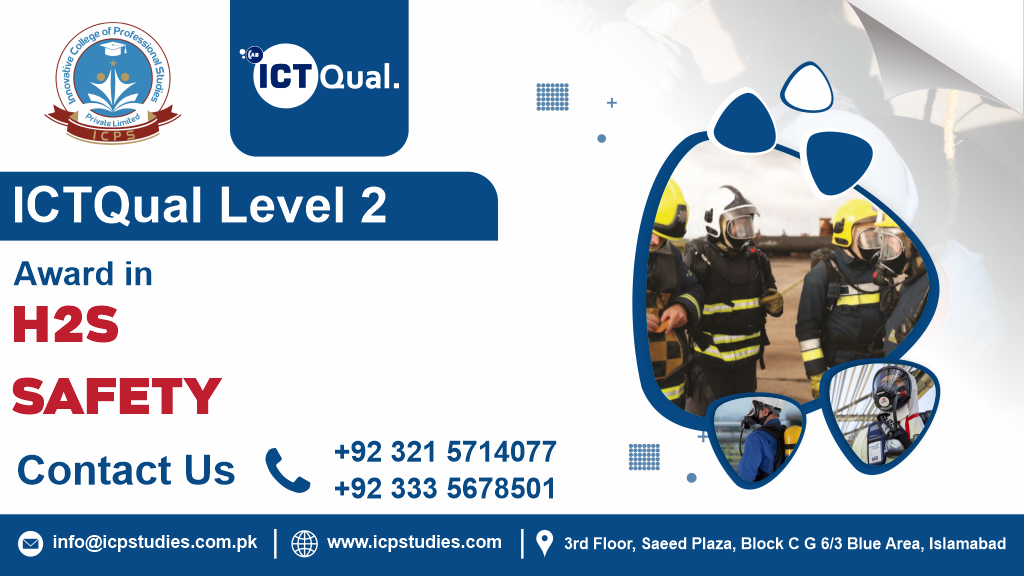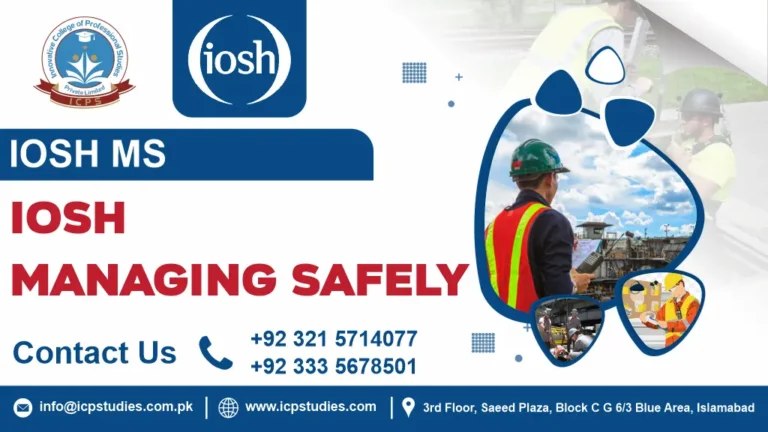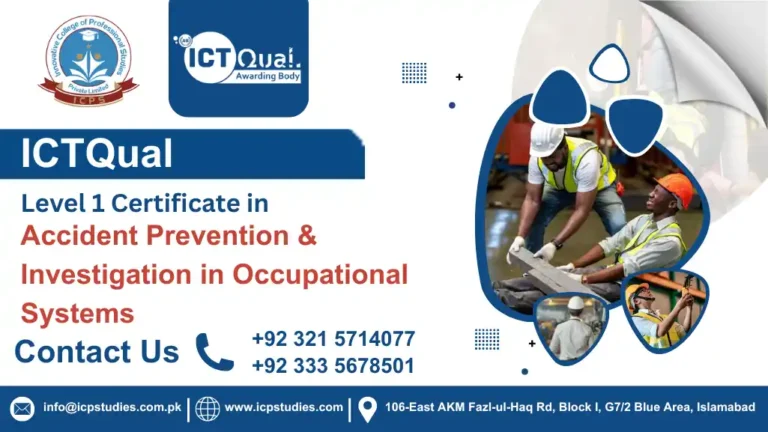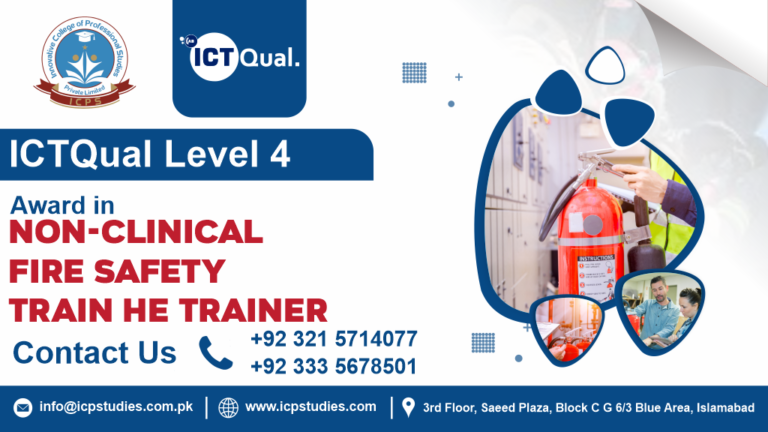In the realm of industrial safety, few hazards are as potentially deadly as hydrogen sulfide (H2S) gas. The Level 2 Award in H2S Safety is a crucial certification designed to equip individuals with the knowledge and skills needed to mitigate the risks associated with this hazardous substance. Whether you’re in the oil and gas industry, environmental services, or any field where H2S may be encountered, this certification stands as a vital pillar of safety protocols.
The Level 2 Award in H2S Safety goes beyond basic awareness by providing participants with in-depth knowledge of H2S properties, its effects on the body, and the most effective ways to control exposure. This certification is not merely a checkbox on a resume; it represents a commitment to ensuring the well-being of oneself and others in hazardous work environments.
Level 2 Award in H2S Safety is not just a qualification; it’s a commitment to safety excellence. By arming individuals with comprehensive knowledge and practical skills, this certification plays a pivotal role in safeguarding lives and enhancing workplace safety standards across industries. Whether you’re aiming to advance your career or simply prioritize safety in your current role, investing in H2S safety training is a decision that pays dividends in both personal and professional realms.
All About ICTQual Level 2 Award in H2S Safety
Course Overview
The Level 2 Award in H2S Safety is a specialized certification aimed at individuals working in industries where exposure to hydrogen sulfide (H2S) gas is a potential hazard. This qualification is designed to provide comprehensive knowledge and practical skills necessary to identify, assess, and manage the risks associated with H2S in the workplace.
Level 2 Award in H2S Safety is a specialized certification that prepares individuals to handle the unique challenges posed by hydrogen sulfide gas in industrial settings. By providing comprehensive training in detection, assessment, and control measures, this certification plays a crucial role in promoting workplace safety and mitigating the risks associated with H2S exposure. For anyone working in industries where H2S is present, investing in this certification is a proactive step towards ensuring personal safety and contributing to a safer work environment.
Study Units
- Introduction to Hydrogen Sulfide (H2S)
- H2S Detection and Monitoring
- Health Effects and Exposure Limits
- Risk Assessment and Control Measures
- Personal Protective Equipment (PPE)
- Emergency Response Procedures
- Legislation and Standards
- Practical Skills Training
- Assessment and Certification
Admission Criteria
The Level 2 Award in H2S Safety course is designed for individuals who work in industries where they may encounter hydrogen sulfide (H2S) gas as part of their job responsibilities. This includes, but is not limited to:
- Oil and Gas Industry Workers: Such as those involved in exploration, drilling, production, and refining operations where H2S can be present in oil and natural gas.
- Chemical Manufacturing Personnel: Where H2S may be produced or used in various chemical processes.
- Wastewater and Sewage Treatment Plant Operators: Who may encounter H2S due to organic decomposition processes.
- Environmental Services Professionals: Engaged in tasks such as landfill management or biogas production, where H2S can be generated.
- Emergency Responders: Including firefighters, paramedics, and hazmat teams who may encounter H2S during emergency situations or incidents.
- Health and Safety Officers: Responsible for implementing and maintaining safety protocols related to hazardous substances like H2S within their organizations.
- Construction and Maintenance Workers: Particularly those working in confined spaces or environments where H2S release is possible.
- Regulatory and Compliance Inspectors: Involved in ensuring adherence to safety standards and regulations concerning H2S exposure in industrial settings.
Key Considerations
- Job Roles: Individuals in roles where H2S exposure is a potential hazard benefit greatly from this course to enhance their understanding of H2S risks and safety measures.
- Safety Managers: Professionals responsible for overseeing safety protocols and training within their organizations find this course essential for ensuring compliance and enhancing workplace safety culture.
- New Entrants: Those entering industries prone to H2S exposure can gain foundational knowledge and safety skills to protect themselves and their colleagues.
Ideal Candidate
Minimum Age: Participants must usually be at least 18 years old at the time of enrollment due to the nature of the hazards and responsibilities involved.
Language Proficiency: A basic level of proficiency in the language of instruction (often English) is required to ensure understanding of course materials, assessments, and safety instructions.
Health and Fitness: Participants may need to meet general health and fitness requirements to ensure they can safely participate in practical activities and emergency response simulations.
Educational Background: While not always mandatory, a basic educational background (e.g., high school diploma or equivalent) may be recommended to understand technical and safety concepts presented during the course.
Employment Status: Some courses may require participants to be employed or have intentions to work in industries where H2S exposure is a potential hazard, such as oil and gas, chemical manufacturing, or wastewater treatment.
Pre-Course Knowledge: Depending on the course provider, there may be a requirement to complete pre-course reading materials or online modules to familiarize oneself with basic safety principles and H2S hazards.
Medical Requirements: In some cases, participants may be required to provide medical clearance or certification indicating they are fit to participate in activities that may involve physical exertion and exposure to simulated workplace environments.
Learning Outcome
- Introduction to Hydrogen Sulfide (H2S)
- Understand the properties, characteristics, and sources of H2S gas.
- Identify common industries and processes where H2S exposure may occur.
- Recognize the potential health hazards associated with H2S exposure.
- H2S Detection and Monitoring
- Demonstrate proficiency in using gas detection equipment to detect and measure H2S concentrations.
- Interpret monitoring results and understand the importance of early detection.
- Implement proper procedures for monitoring H2S levels in the workplace.
- Health Effects and Exposure Limits
- Describe the acute and chronic health effects of H2S exposure.
- Explain exposure limits and thresholds set by regulatory agencies.
- Recognize symptoms of H2S exposure and understand the importance of prompt medical attention.
- Risk Assessment and Control Measures
- Conduct a risk assessment to identify potential H2S exposure hazards in the workplace.
- Propose and implement effective control measures to minimize H2S exposure.
- Evaluate the effectiveness of control measures and adjust strategies as necessary.
- Personal Protective Equipment (PPE)
- Identify appropriate types of PPE for H2S exposure based on workplace conditions and exposure levels.
- Demonstrate correct procedures for donning, doffing, and maintaining PPE.
- Understand the limitations of PPE and the importance of using it in conjunction with other control measures.
- Emergency Response Procedures
- Outline emergency response protocols for H2S leaks or exposure incidents.
- Implement evacuation procedures and safe assembly points.
- Administer basic first aid to individuals exposed to H2S until professional medical help arrives.
- Legislation and Standards
- Summarize relevant legislation, regulations, and industry standards related to H2S safety.
- Ensure compliance with legal requirements and organizational policies regarding H2S exposure.
- Advocate for continuous improvement in safety practices based on legislative updates and industry standards.
- Practical Skills Training
- Demonstrate practical skills in handling H2S-related equipment and tools.
- Practice safe work procedures to minimize H2S exposure in simulated or real-world scenarios.
- Apply theoretical knowledge to practical situations and make informed decisions to enhance workplace safety.
- Assessment and Certification
- Successfully complete assessments to demonstrate understanding of H2S safety principles and practices.
- Obtain certification indicating competence in H2S safety management and response.
- Commit to ongoing professional development and continuous improvement in H2S safety knowledge and skills.
These learning outcomes collectively ensure that individuals completing the Level 2 Award in H2S Safety are well-equipped to mitigate risks associated with H2S exposure, protect themselves and others in the workplace, and contribute to a culture of safety within their organization.
FAQs about ICTQual Level 2 Award in H2S Safety







